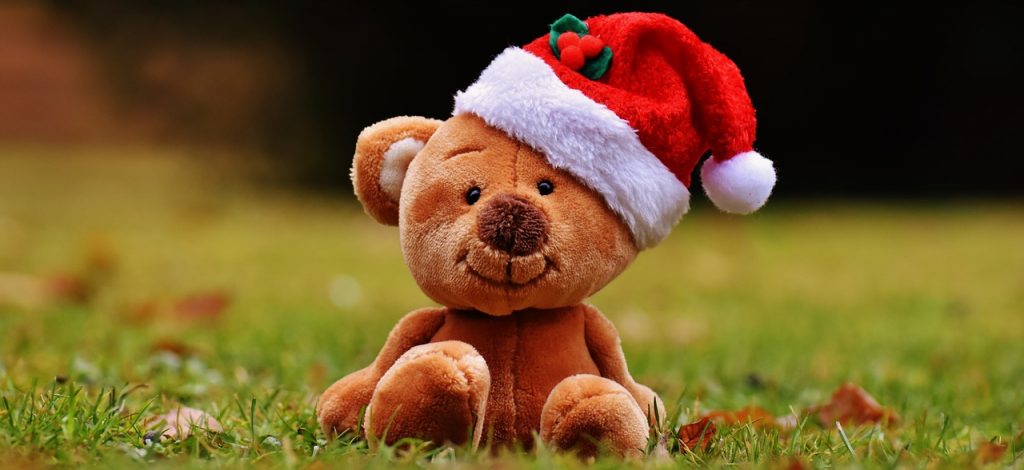 The Christmas season is certainly a happy time for many people, but it’s often hectic nature can cause a great deal of stress.
The Christmas season is certainly a happy time for many people, but it’s often hectic nature can cause a great deal of stress.
Thankfully, there are easy ways to manage this stress without distracting from the necessary shopping, cooking, and family time. The psychologist, Dr. Tara Brach, claims that this is a perfect time to see how meditation can help relieve stress and boost overall happiness.
Meditation, Dr. Brach contends, promotes the idea of mindfulness, encouraging us to simply sit in the present moment. This helps stop our mind from dwelling on past interactions or from stressing about future events. This allows us to relax and regain a level of focus and perspective.
If you are experiencing holiday stress, you are not alone. The American Psychological Association offers a few recommendations to help you relax. They encourage each of you to “take time for yourself” and “be mindful and focus on the present,” connecting to the idea of meditation.
Many readers may instantly roll their eyes and dismiss these notions of mindfulness and meditation as fully of trendy, New Age buzzwords, but Dr. Brach points to the scientific evidence for an actual neurological effect from meditation. This research suggests that meditation can have a positive effect on the emotional sectors of your brain.
This is just one example of the evidence showing that mediation has a beneficial impact on your brain. A 2011 study at Yale University found that meditation helps prevent the mind from wandering, promoting happiness by maintaining mindfulness. Similarly, numerous studies have shown that meditation can reduce depression, anxiety, and even help treat addiction.
The practice of meditation may call to mind a multiple hour Zen retreat or stories of practitioners sitting for days on end, but that sort of time commitment is unreasonable for beginners, especially beginners overwhelmed by the Holiday season! Instead, Dr. Brach explains that meditation does not have to take longer than a few minutes.
Even devoting just a couple minutes can be enough to help you relax. If you do not have the physical space to sit in peace, taking deep breathes and focusing on the feeling of those breathes can help you realize benefits even amidst the hustle and bustle of holiday preparation.
Finally, it is important to remember that the holiday season is not a happy time for everyone, and the Mayo Clinic has released some tips for dealing with this phenomenon. Remember to reach out to others and acknowledge that it is acceptable, and common, to feel stressed and depressed around this time.
For more information on mindfulness and meditation, see our past blogs here and here.
 While Christmas is often visualized with a heap of neatly wrapped presents under a tree, a growing body of research suggests that true happiness comes from a very different sort of gift giving.
While Christmas is often visualized with a heap of neatly wrapped presents under a tree, a growing body of research suggests that true happiness comes from a very different sort of gift giving. As you can see, at the start of the day and immediately after a meal break there was a 65% chance that the judges would approve a case. This gradually declined until it hit 0% just before a meal break, and then shot up to around 65% again straight after the break. This is arguably because the judges experience a good feeling when they have a break and eat some food which they then associate with whatever case they then come to look at, making them more likely to approve the cases close to their meal breaks. This is another cognitive bias that seems to have a great effect on the likelihood of asylum seekers having their case approved.Whilst parole judges are trained to consider the legal merits of cases presented to them, these cognitive biases are largely unknown and not included as part of their training. I think it’s important that courts become more aware of the existence and effects of these in order to attempt to counteract them in judges decisions. In the meantime, if you’re seeking asylum I suggest you somehow aim to get a hearing first thing in the morning before the judge has looked at any other cases, or immediately after they’ve had a meal break. Moskowitz suggests that perhaps a good lawyer would be able to lobby for this. Failing this, perhaps the best option left would be to inconspicuously give the judge a snack so that they come to associate the good feeling they receive from food with your asylum case. Make sure this snack isn’t Twiglets though, because Twiglets taste gross and definitely won’t leave a good taste in the judge’s mouth!References Cialdini, R. (2009) Influence: Science and Practice. 5th edn. Harlow: Pearson Education (US). Chen, D. L., Moskowitz, T. J. and Shue, K. (2016) ‘Decision-Making Under the Gambler’s Fallacy: Evidence from Asylum Judges, Loan Officers, and Baseball Umpires’, SSRN Electronic Journal. Danziger, S., Levav, J. and Avnaim-Pesso, L. (2011) ‘Extraneous Factors in Judicial Decisions’, Proceedings of the National Academy of Science. 108(17), pp. 6889-6892. Dubner, S. J. (2016) How to Make a Bad Decision. Freakonomics Radio. Kahneman, D. (2012) Thinking, Fast and Slow. London: Penguin Press/Classics.By Gemma Crook
As you can see, at the start of the day and immediately after a meal break there was a 65% chance that the judges would approve a case. This gradually declined until it hit 0% just before a meal break, and then shot up to around 65% again straight after the break. This is arguably because the judges experience a good feeling when they have a break and eat some food which they then associate with whatever case they then come to look at, making them more likely to approve the cases close to their meal breaks. This is another cognitive bias that seems to have a great effect on the likelihood of asylum seekers having their case approved.Whilst parole judges are trained to consider the legal merits of cases presented to them, these cognitive biases are largely unknown and not included as part of their training. I think it’s important that courts become more aware of the existence and effects of these in order to attempt to counteract them in judges decisions. In the meantime, if you’re seeking asylum I suggest you somehow aim to get a hearing first thing in the morning before the judge has looked at any other cases, or immediately after they’ve had a meal break. Moskowitz suggests that perhaps a good lawyer would be able to lobby for this. Failing this, perhaps the best option left would be to inconspicuously give the judge a snack so that they come to associate the good feeling they receive from food with your asylum case. Make sure this snack isn’t Twiglets though, because Twiglets taste gross and definitely won’t leave a good taste in the judge’s mouth!References Cialdini, R. (2009) Influence: Science and Practice. 5th edn. Harlow: Pearson Education (US). Chen, D. L., Moskowitz, T. J. and Shue, K. (2016) ‘Decision-Making Under the Gambler’s Fallacy: Evidence from Asylum Judges, Loan Officers, and Baseball Umpires’, SSRN Electronic Journal. Danziger, S., Levav, J. and Avnaim-Pesso, L. (2011) ‘Extraneous Factors in Judicial Decisions’, Proceedings of the National Academy of Science. 108(17), pp. 6889-6892. Dubner, S. J. (2016) How to Make a Bad Decision. Freakonomics Radio. Kahneman, D. (2012) Thinking, Fast and Slow. London: Penguin Press/Classics.By Gemma Crook